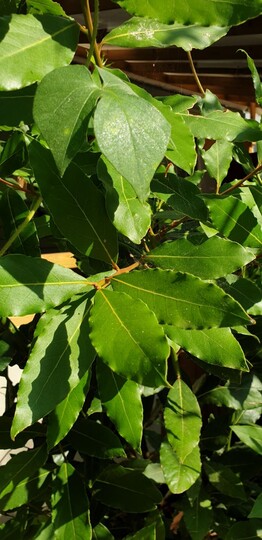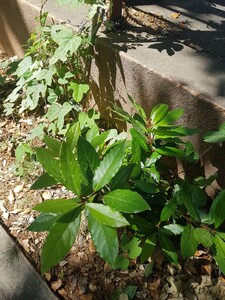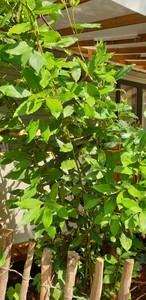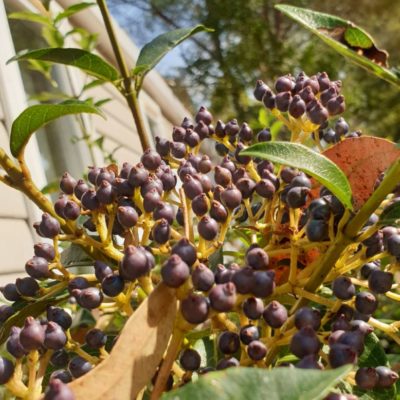Laurus nobilis (bay tree)
Presentation
Useful and beneficial
Originating from the Mediterranean basin, the bay tree is also commonly referred to as bay laurel, sweet bay, true laurel, Grecian laurel, or simply laurel. The bay tree, or Laurus nobilis, is far more than a simple aromatic plant used for cooking and has been renowned since Antiquity for its numerous medicinal and therapeutic properties.
The bay tree (laurier sauce in French) should not be confused with oleander (laurier rose in French), which is also found at our four-star campsite Les Jardins de La Pascalinette®: oleander is toxic and should absolutely not be consumed!
Bay leaves are rich in beneficial compounds such as tannins, flavonoids and essential oils, lending them anti-inflammatory, antioxidant and antiseptic properties.
Bay leaves can also be made into a herbal tea used to relieve stomach aches, joint pain and digestive disorders.
A zen moment with the bay tree
In addition to their health benefits, bay leaves are famed for their relaxing and soothing properties. Their aromatic scent calms the nerves and promotes relaxation, making them an excellent natural remedy for stress and anxiety. In cooking, bay leaves are commonly used to add a subtle touch of flavour. They can be added to sauces, stews, soups and marinades to add depth and complexity to every dish.
Laurel is also the symbol of Apollo, signifying victory and triumph. And of course, laurel made up the crown that adorned Caesar’s head!
Today, our baccalaureate students also symbolically wear this crown: bacca laurea means “laurel berry”!
Identity
| Latin name : | Laurus nobilis |
|---|---|
| Family : | Lauraceae |
| Genus : | laurus |
| Color : | Green |
| Origin : | Mediterranean basin |
| Foliage : | Evergreen |
| Port : | Shrub |
| Height : | 2 to 10 m |
| Flowering : | Spring |
| Location : | You'll find a bay tree by the pétanque court, next to the playground |
Did you know?
Only the dried leaves are used, as fresh bay leaves can have hallucinogenic effects! Laurel is also used for the manufacture of essential oils.






